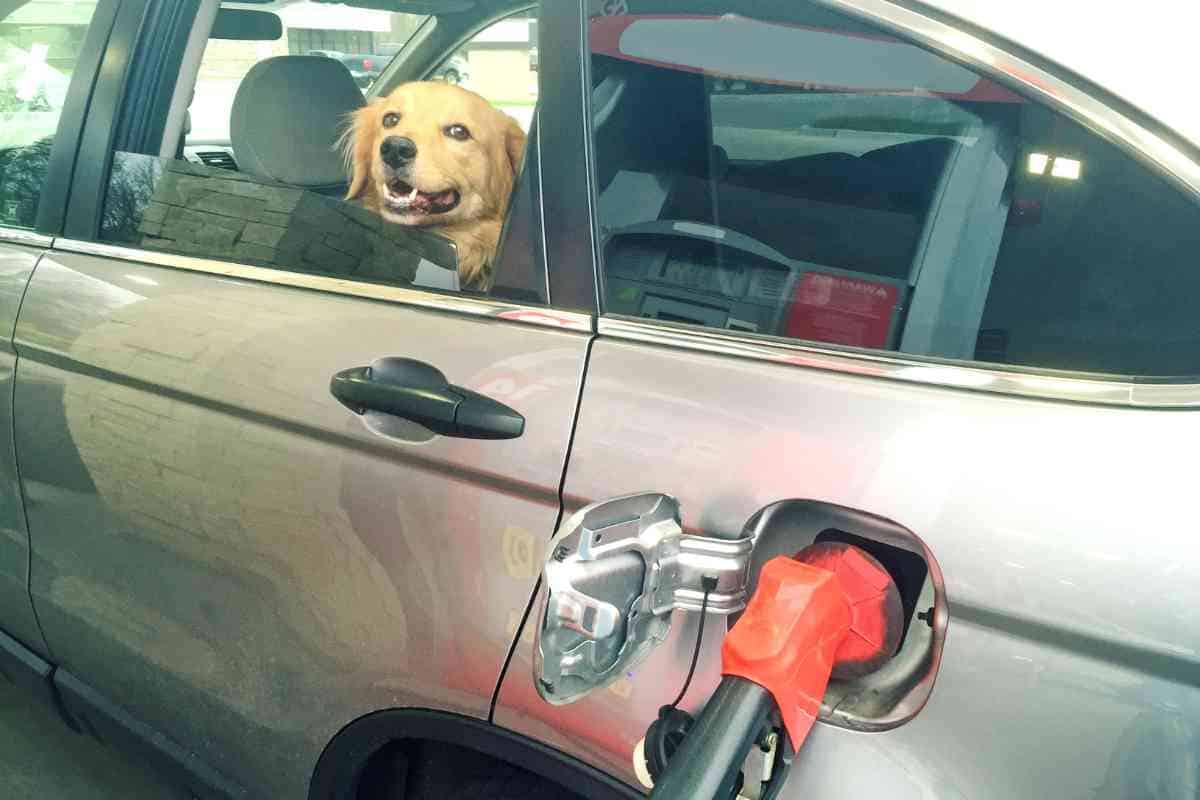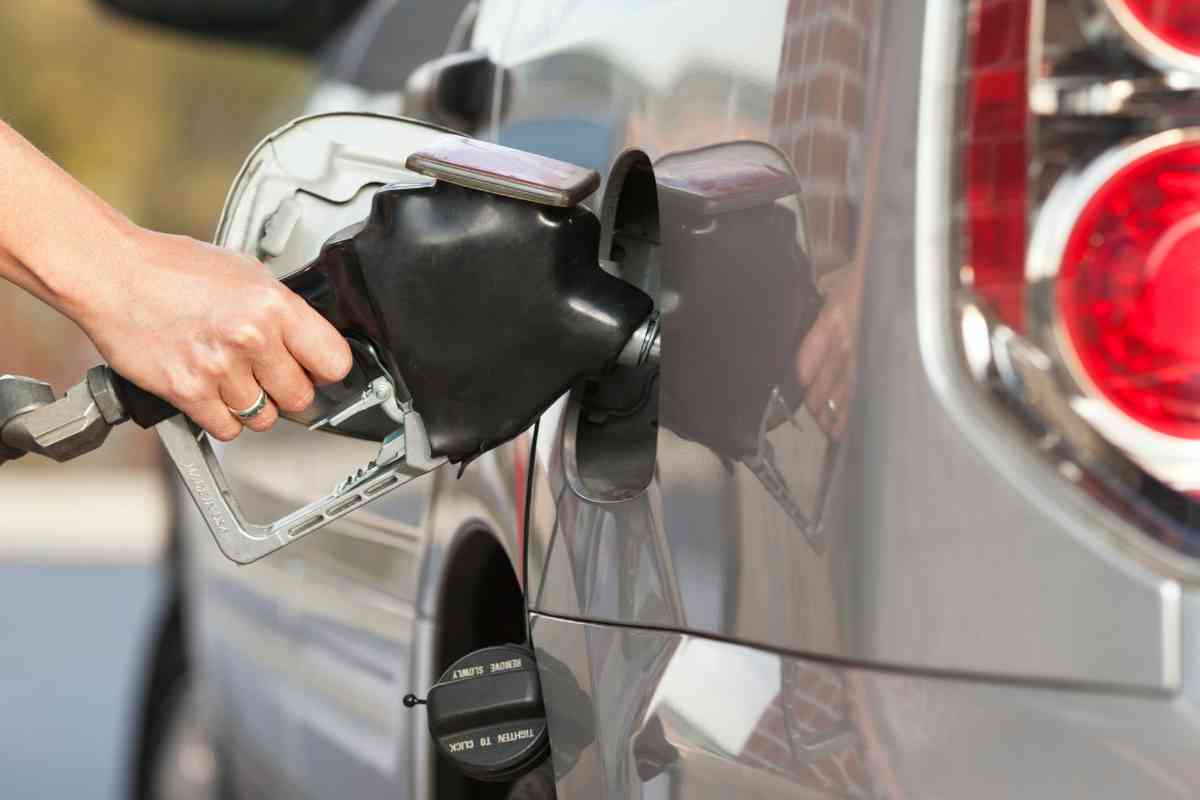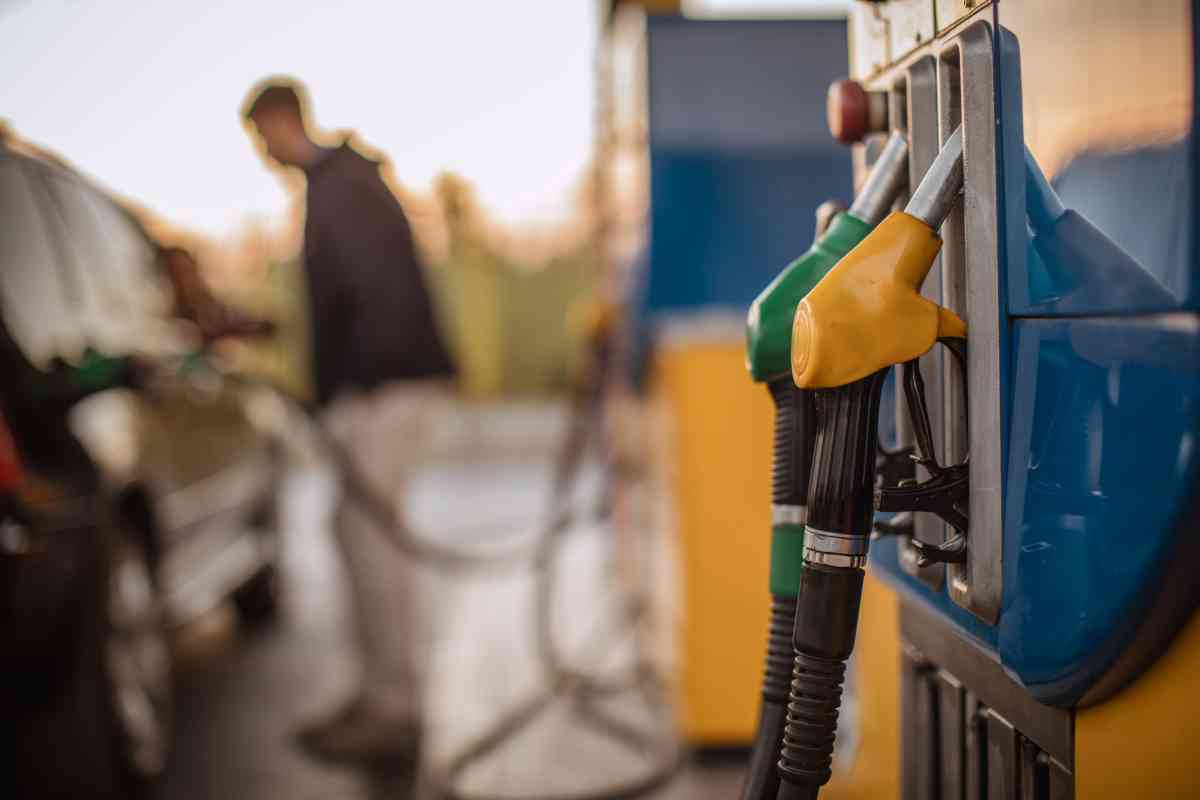Can You Leave A Car Battery On While Getting Gas?
Car batteries are vital in modern-day transportation. So, should your car battery be on or off while getting gas?

Can you leave a car battery on while getting gas?
Your car battery should be off while getting gas, as it poses a potential danger. Refueling an engine with flammable liquids such as gasoline or diesel fuel can cause explosions due to a spark created by static electricity.
Car batteries store the energy needed to power the car’s electrical system and provide enough electricity to start your engine. We asked car experts to determine if you can leave your vehicle running while pumping gas.
What is a Car Battery, and How Does It Work?
The car battery is an essential component of the automobile ignition system that initiates combustion for mechanical movement. This small part contains six cells filled with lead acid compounds (sulphuric acid).
Each cell has its own electrolyte solution, forming what we call ‘lead plates’ when connected. This lead plate grid is then connected to the terminals found on top of your car battery, which is connected to the ignition system.
When current is passed through these plates and electrolyte solution, a chemical reaction produces electrons (or electricity).
Dangers of Leaving the Car Engine Running During Refueling

When leaving your car engine running during refueling, there’s always a chance that a spark could ignite near flammable vapors. And this could result in an explosion due to high levels of combustible fumes often present at petrol stations and nearby areas where cars may be refueled regularly.
This risk increases even more if you have left anything metal inside the vehicle, like keys, coins, or spare parts, which could create sparks and increase the likelihood of a spark setting off combustible fumes.
How to Safely Leave Your Vehicle on While Pumping Gas
The best and safest way to leave your vehicle running while refueling is by making sure that you are always in attendance and paying close attention. This means turning off electrical devices, such as radios or speakers in your car, phones, or tablets, which may create sparks near flammable vapors.
You should also keep the car windows open so that you can hear if something goes wrong from outside of the vehicle.
It’s also important to remember not to stand directly in front of or behind your car when pumping gasoline, as this could lead to toxic fumes being inhaled into the lungs, which can be extremely hazardous to your health.
The Benefits of Having a Car Battery Charger

A car battery charger is beneficial for many reasons, especially when it comes down to leaving your vehicle running while refueling at gas stations.
These chargers provide enough electrical power so that no matter how long they have been left unattended, the car can start up again safely.
This also prevents any potential harm from occurring due to an ignition failure which can often happen if a vehicle is left unattended for too long without using a charger.
What Can Go Wrong if You Leave Your Car Running Unattended?
Leaving your car running for an extended period is never recommended, as it can affect the performance and reliability of your engine in several ways; including
- Engine damage due to overheating
- Poor performance due to excessive build-up of fuel deposits on exhaust systems
- Decrease in oil pressure, causing premature wear on parts such as pistons, rings, and valves
- Potential battery drain leading to reduced starting power or an inability to start at all
How Does Liquid Fuel Affect the Power of a Car Battery?

When liquid fuel enters into contact with electrical components inside a car’s engine, it can cause short circuits.
Depending on their structure, age, and condition, these could eventually lead to complete loss of power or even fire hazards within certain vehicles.
It’s important to remember that liquid fuel can easily corrode electrical components if not appropriately handled. It should never be used when trying to jump-start a car battery or any other maintenance-related activity involving electricity.
The Risk of Damage When Igniting With Low Electricity in the Battery
When it comes down to starting a car, having enough power from the battery is essential for the engine to start up correctly.
However, suppose ignition occurs with low power in the battery; there is a risk of damage occurring within certain areas of your vehicle, which are all directly connected to the combustion process inside an engine.
The damage could be the spark plugs, pistons, rods, or valves. If this occurs, you may need professional help and/or parts replacements for your vehicle’s performance level and reliability standards to remain up-to-date at all times.
What Things Should You Consider Before Leaving Your Vehicle Idling for Extended periods?
When leaving your car idle for long periods, there are several things you should consider:
Ensure the engine is not in danger of overheating by keeping all windows open and switching off any electrical devices that may cause friction alongside combustible substances such as gasoline or diesel fuel.
You should also check if the battery has enough power to last during the entire duration that it’s left running unattended; otherwise, a car battery charger might be recommended.
Do Batteries Lose Their Power When You Leave Your Car For Long Periods Of Time?
Yes, batteries lose their power when left alone for extended periods. This is due to chemical reactions occurring within their cells, which can reduce levels of energy stored inside them over time regardless if they’re connected or disconnected from a vehicle at any particular point in time.
This means that even though you may have had enough electricity when starting up your car initially, after several hours/days, this same level may no longer suffice.
Therefore, you’ll have to recharge with an external device, such as a car battery charger, before attempting further use on roads again.
Key Takeaways
- Car batteries provide power for engine start-up.
- It’s possible to leave your vehicle running while pumping gas, but not recommended.
- Open windows, switch off electrical devices and remove combustible items.
- Batteries will lose their power over time, whether connected or disconnected.
- Charge the batteries regularly with a battery charger for optimal performance.
